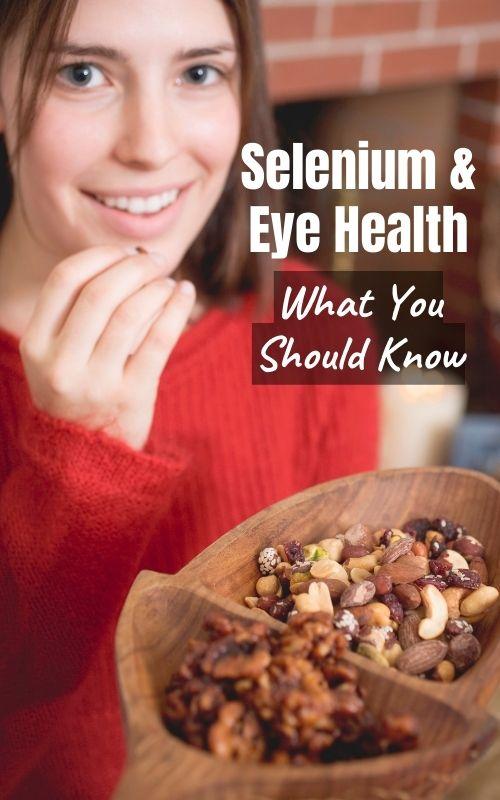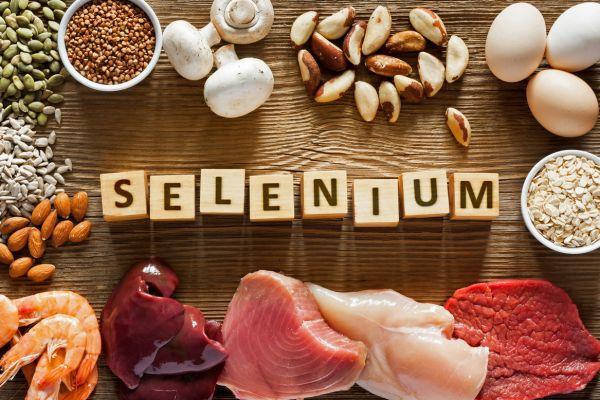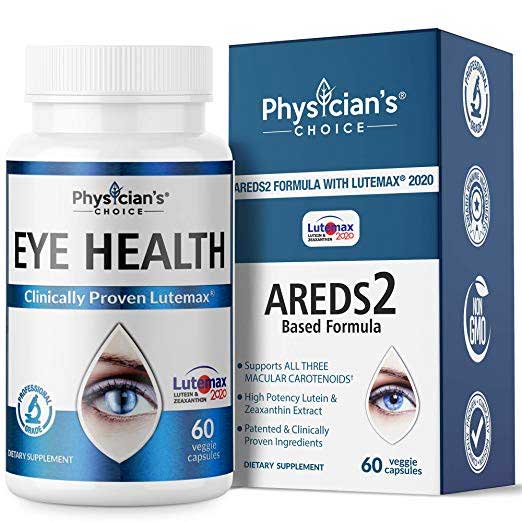
Selenium, a trace mineral found in various foods, offers remarkable benefits for promoting healthy vision. But what do the research studies say about the selenium benefits for eyes, and what foods can you consume to get more of this trace mineral in your diet?
Selenium Research Studies Pertaining to Vision:
First of all, the National Eye Institute conducted the Age-Related Eye Disease Study (AREDS). Researchers discovered that selenium, along with other specific antioxidants, slowed age-related macular degeneration progression by 25 percent. [1]
Second, the Rotterdam Study correlated higher selenium levels with a reduced risk of developing AMD. [2]
Third, the Nutritional Prevention of Cancer Trial showed that supplementing selenium lowered the occurrence of cataracts as well as other age-related eye diseases. [3]
Selenium-Rich Foods for Eye Health:
Of course, you can simply take a selenium supplement. However, you can also consume this nutrient in food. Here are the top foods containing selenium:
| Food | Selenium Content (mcg per serving) |
|---|---|
| Brazil Nuts | 544 |
| Yellowfin Tuna | 92 |
| Oysters | 82 |
| Halibut | 47 |
| Sardines | 45 |
| Shrimp | 41 |
| Lean Beef | 33 |
| Turkey | 31 |
| Chicken | 22 |
| Eggs | 15 |
Health Benefits You May Not Know About Selenium:
Selenium has proven to be beneficial to eyesight because of its potent antioxidant that fights oxidative stress, inflammation and cellular damage. As a bonus, these properties are also useful to overall health.

Moreover, emerging research suggests its potential in reducing the risk of certain cancers, supporting immune function, and promoting cardiovascular health.
Selenium & Eye Health FAQ:
Q: How much selenium do I need daily for optimal eye health?
A: For adults, selenium RDA (recommended daily allowance) is 55 mcg. That being said, the amount can vary depending on your overall health condition as well as your age and gender.
Q: Can I obtain sufficient selenium through my diet alone?
A: Yes, you can simply eat selenium-containing foods to reach your daily RDA. However, selenium supplements can be helpful for specific health conditions as recommended by a physician.
Q: Does selenium supplementation come with any risks?
A: While selenium is essential for our health, excessive intake can be harmful. It is important to adhere to recommended guidelines and avoid surpassing the upper tolerable limit (UL) of selenium, which is set at 400 mcg for adults. Always consult with your healthcare provider before initiating any supplements.
Summary:
Like other nutrients like lutein, vitamin C and omega 3, selenium plays a crucial role in promoting healthy vision and overall eye health. For instance, this trace mineral has shown promising benefits in reducing the risk of macular degeneration and cataracts.
So, by eating selenium-rich foods like Brazil nuts, tuna, oysters and lean beef, you can naturally boost your eye health.
Note: Furthermore, this important antioxidant supports our thyroid, boosts immune function and supports cardiovascular health. Therefore, you have more than one reason to ensure that you get adequate selenium in your diet.
Remember to consult with your healthcare provider for personalized advice and maintain a balanced approach to nutrition and eye care.
Sources:
- National Eye Institute: https://www.nei.nih.gov/news/pressreleases/050513
- JAMA Ophthalmology: https://jamanetwork.com/journals/jamaophthalmology/fullarticle/639284
- JAMA Ophthalmology: https://jamanetwork.com/journals/jamaophthalmology/fullarticle/413203

